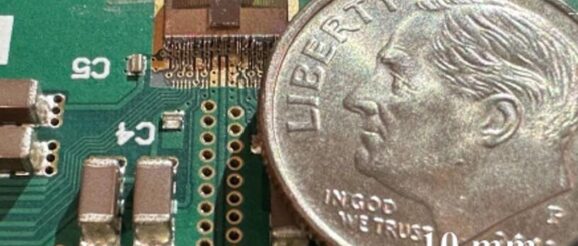JUMP 2.0 Consortium Targets Microelectronics Innovation | Business | Jan 2023 | Photonics.com

[email protected]
Research institution partnerships
Georgia Institute of Technology (Georgia Tech) will lead two of the seven centers. Through an investment of approximately $65.7 million, the Center for the Co-Design of Cognitive Systems (COCOSYS) and the Center on Cognitive Multispectral Sensors (COGNISENSE) will be established at the university. COCOSYS will be tasked with developing next-generation AI systems and architectures. COGNISENSE will focus on sensing capabilities and embedded intelligence to enable fast and efficient generation of actions.
Columbia University will host the Center for Ubiquitous Connectivity, or CUbiC, to be established via a $35 million five-year grant. The center will focus on the advancement of energy-efficient communications technologies for addressing the vastly growing connectivity bottlenecks between data-hungry wireless devices and deluged data centers. Led by professor Keren Bergman, the CUbiC team’s principal investigators include professor of electrical engineering and expert in integrated circuits Harish Krishnaswamy, and professor of applied physics and silicon photonics pioneer Michal Lipson.
The University of Illinois at Urbana-Champaign will host the ACE Center for Evolvable Computing, which will target Jump 2.0’s Systems and Architectures for Distributed Compute theme. The center will have a budget of $39.6 million over five years.
The University of California, San Diego received a $35 million grant for the Center for Processing with Intelligent Storage and Memory (PRISM). The center, focused on the Intelligent Memory and Storage theme, will work on emerging memory devices and storage arrays for intelligent memory systems. A group of 10 universities will band together and contribute additional funds to create the $50.5 million center.
The Center for Heterogeneous Integration of Micro Electronic Systems (CHIMES) will be established at Pennsylvania State University (Penn State) thanks to a $32.7 million grant. CHIMES participants will explore 23 research tasks under four synergistic themes, which include system-driven functional integration and aggregation; monolithic 3D densification and diversification on silicon platform; ultradense heterogeneous interconnect and assembly; and materials behavior, synthesis, metrology, and reliability.
Cornell University will establish the Superior Energy-Efficient Materials and Devices (SUPREME) Center. Huili Grace Xing, the William L. Quackenbush Professor of Engineering in materials science and engineering, and in electrical and computer engineering, at Cornell Engineering, will serve as the center’s director. Tomás Palacios, director of Microsystems Technology Laboratories and a professor of electrical engineering and computer science at MIT, will serve as the center’s associate director. The center’s managing director will be Thomas Dienel, a condensed-matter physicist who has been running the user program at Cornell’s Platform for the Accelerated Realization, Analysis, and Discovery of Interface Materials (PARADIM). The $34 million center will be funded by SRC and its 14 partner universities. Cornell’s investment in the five-year project will be $7 million.
